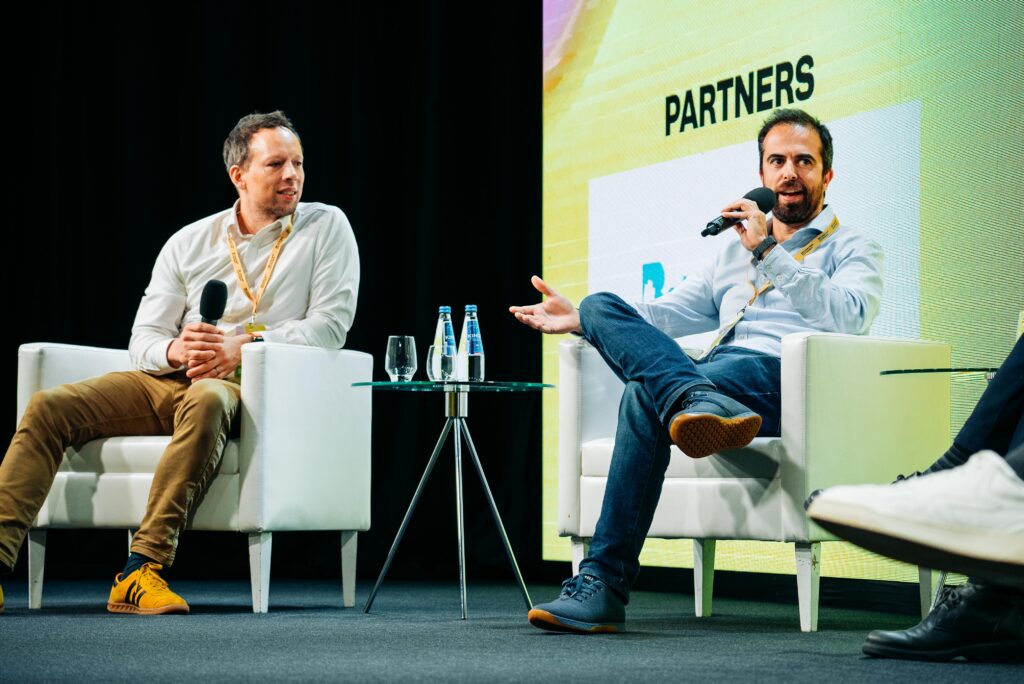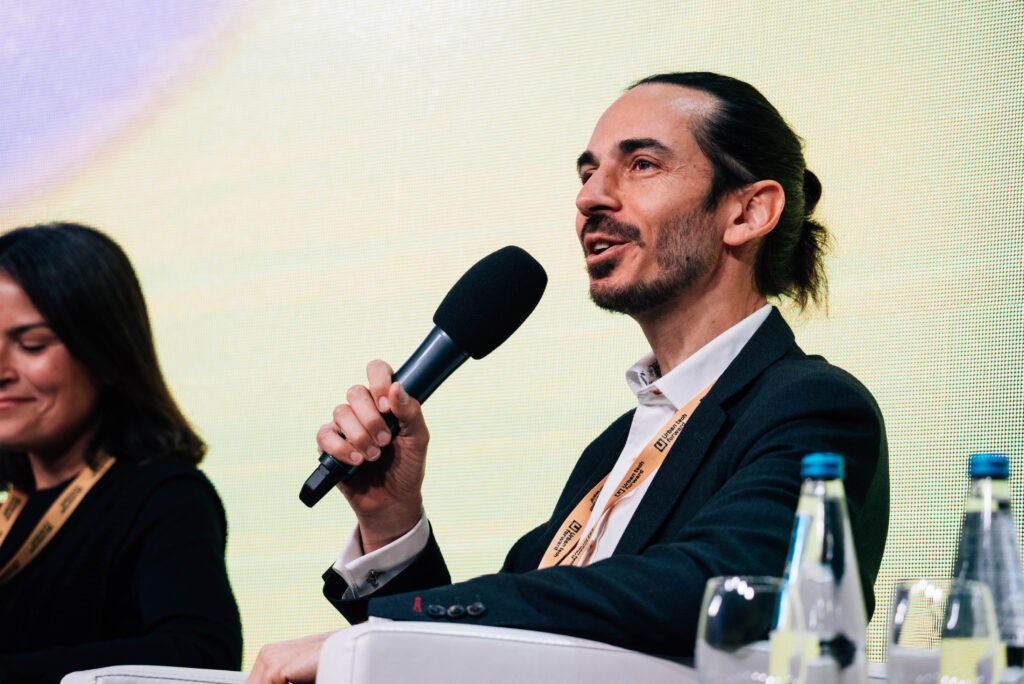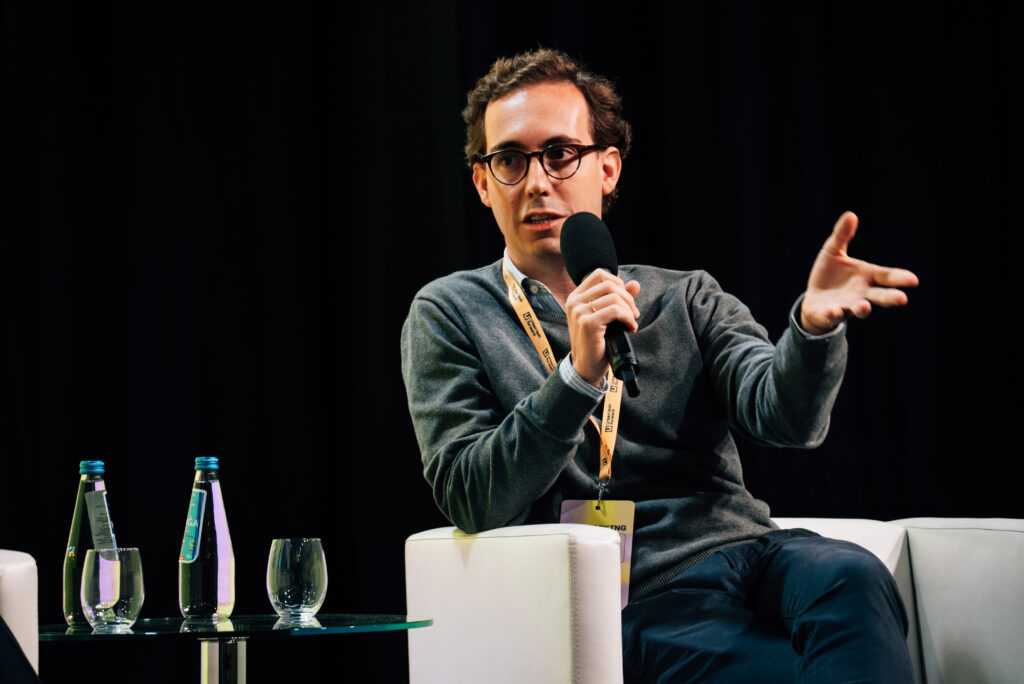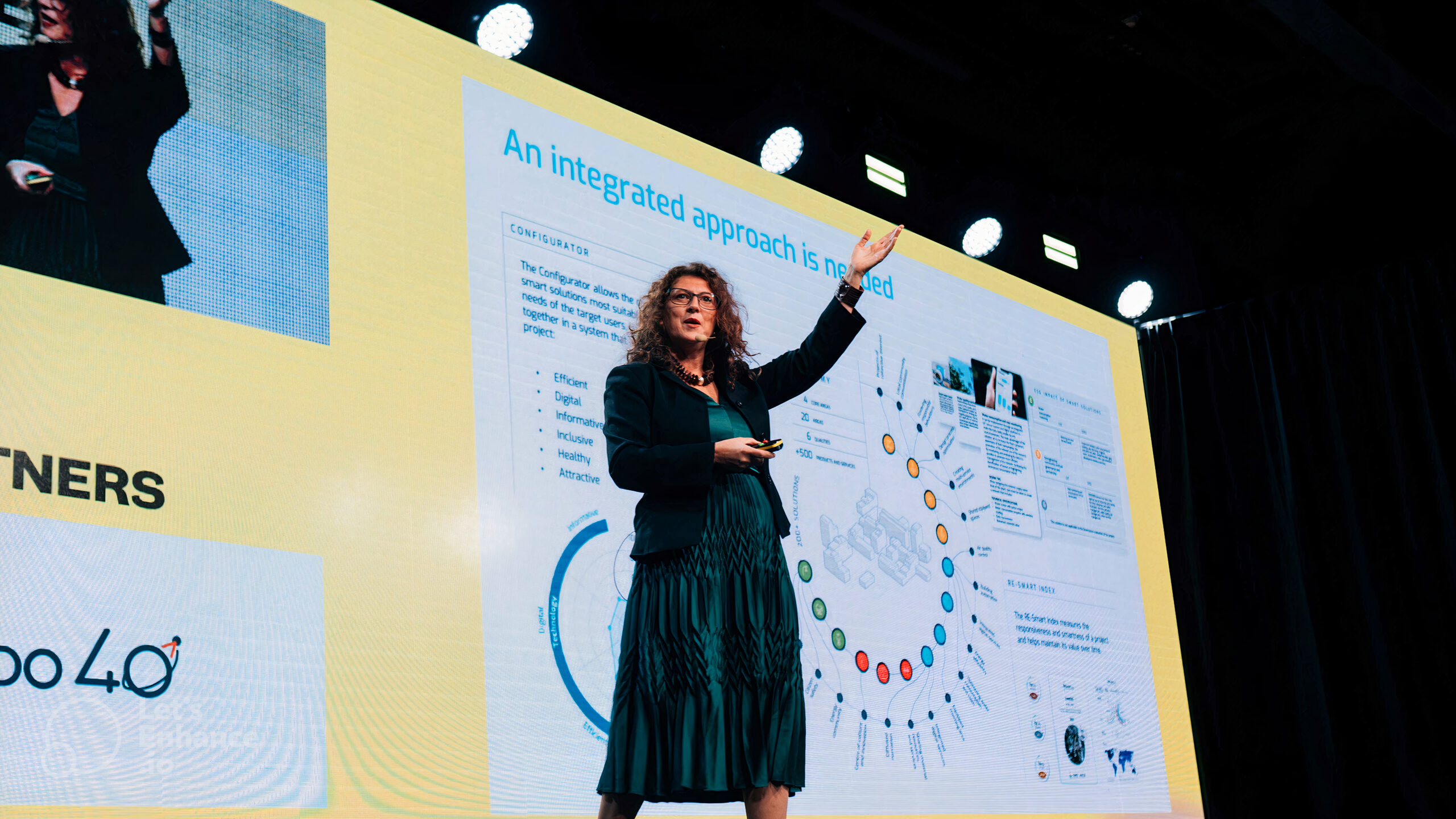We’re in the midst of a green revolution – at the very least we ought to be. As more people reside in cities, the list of problems urban areas face grows, forcing us to rethink the way we live and build.
We need better cities
“Together we can push forward to create cities that are carbon-free, resilient, and inclusive”. Such words opened Urban Tech Forward, a global conference for urban technology professionals, taking place on October 25-26, 2023.
On the first day, industry leaders were adamant that our cities are not up to standard. Cement buildings, nerve wracking traffic flows, evergrowing waste – these are just a few modern day problems that require urgent solutions.
“If someone has to do it, it has to be us”, as Conan Lauterpacht, Founding Partner at Sustainable Future Ventures, put it, showcasing the stance of the industry. Cities are about to undergo a transformation.

The price of going green
One of the key obstacles to tackle on the journey to net-zero cities is the rise in cost. Many of the new technologies require additional investments and can become a burden to citizens, as the cost of living is already at an all-time high.
“The majority of the population cannot afford it”, admitted Katarzyna Wszola, Director of Innovation at Veolia Poland.
However, as the number of startups in the industry increases every year, the search for the right time, money and sustainability balance is happening intensely. At the event, urban tech investors had no doubt that pouring money into green tech will pay off and is a key step to take towards a more environmentally-friendly future.
“There’s a real incentive for the private sector to move forward”, believes Benjamin Kafri, Global Head of Innovation, Client Relations and Partnerships at Bloomberg NEF.

A push for more regulations
Government intervention is often thought of as restraining. However, at Urban Tech Forward, entrepreneurs actually called for more. As Andreas Winter-Extra, Partner at Kompas VC put it, “Regulation is often seen as a threat but is actually a friend.”
A lot of attention was brought to creating incentives to develop and adopt green technologies – by setting requirements, accompanied by investment and creating a tipping point for their implementation.
Moreover, regulations level up the playing field and allow the planning of investments. “Truly, regulation is the best incentive”, concluded Edelio Bermejo, Head of Global R&D at Holcim Innovation Center.
Construction industry reconsidered
People are good at noticing things they interact with. It makes sense that this type of area receives more thought than others. One of the overlooked – the buildings themselves.
The environmental impact of cement has only gotten attention over the last few years, despite producing more carbon emissions than air travel. As Juan Nieto, GP & Founding Partner at Zacua Ventures, points out, “the use of cement is one of the biggest climate threats.”
“The time we have to invest into decarbonisation is limited”, the expert believes. Thus, it is no surprise that many speakers at the event focus a lot on the construction field and finding solutions that offer the right balance of cost and efficiency.

About Urban Tech Forward
Urban Tech Forward is a premier climate tech event with a mission to accelerate the development of net-zero cities. Designed to rethink spaces where people live and work – through the prism of decarbonisation and resilience – it brings together urban tech innovators, VCs, real estate developers, policy-makers and most prominent entrepreneurs to shift the way we make real progress on achieving a zero-carbon future.
Learn more about Urban Tech Forward at urbantechforward.com

